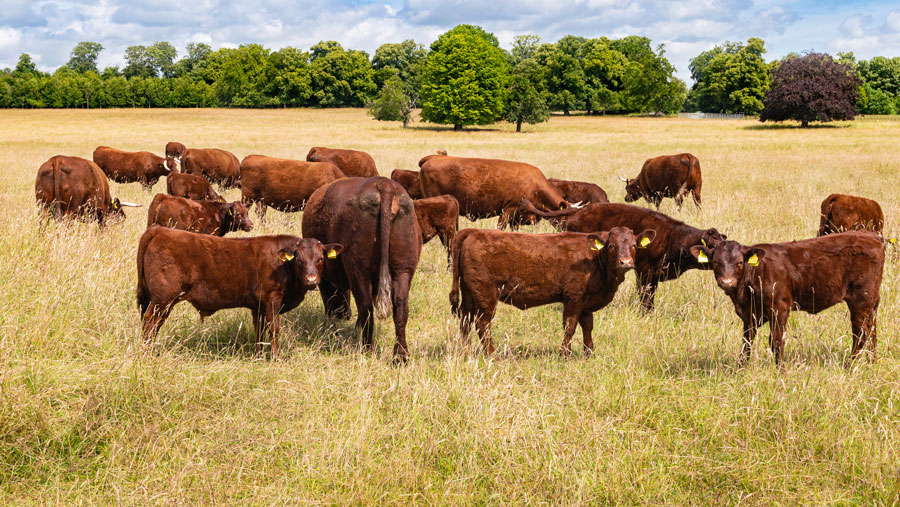Practical and financial barriers hinder beef sector’s net zero aims
 © Stefan K/Adobe Stock
© Stefan K/Adobe Stock Progress towards reaching net zero carbon emissions on beef farms is being hindered by financial barriers and policymaker indecision, a new study reveals.
Beef farmers in Devon’s “Ruby Country” are taking steps to promote good soil health and biodiversity.
This includes adopting sustainable farming practices, such as low-input grass-fed cattle, organic approaches and planting hedges.
But their work is being hampered by a lack of clarity about developing policy agendas, which net zero farming approaches will be subsidised, and to what extent.
The farmers have also raised concerns about taking land out of food production, how to secure grants for large-scale infrastructure, funding for smaller or specialist equipment, rewards for work already carried out, and planning barriers on infrastructure.
See also: 21 ways beef producers can tackle net zero
Meeting six times over spring 2021, the forum was made up of 24 representatives from the wider beef sector in West Devon and Torridge.
The findings are included in the Ruby Country Net Zero Beef Farming Forum report, which was launched at the Holsworthy and Stratton Agricultural Show, following work between farmers and experts from Rothamsted Research and the University of Exeter.
Practical difficulties
Dr Alice Moseley from the University of Exeter said: “Farmers told us a one-size-fits-all approach to net zero wouldn’t work and they need further support to help with this.
“While they supported a focus on environmental issues within agriculture and land use, they also wanted to see a recognition within policy that farmers also need to make a living – the financial returns for farmers adopting agroforestry, for example, are very long term.
“Current financial challenges and changes in the sector make this all the more difficult, with farms having little if any spare cash to invest in new tools or infrastructures necessary to achieve net zero goals.”
Farmers ‘let down’
Andy Gray, a catering butcher and mixed farmer from Copplestone, Devon, said farmers felt let down by slow policy development and delivery and he urged the government to act immediately.
“Enthusiasm to change is not a barrier, farmers have an appetite for change,” he said. “A major consideration is the availability of knowledge. We have lots of science we should be following, there is no central point to access this,” he said.
Recommendations from the Ruby Country Net Zero Beef Farming Forum have been shared with the Devon Climate Emergency Response Group and will form part of the evidence for the new Devon Carbon Plan, which outlines Devon’s path to achieving net zero by 2050 at the latest.
Farmers Weekly has contacted Defra to request a comment.
